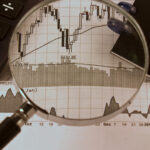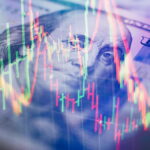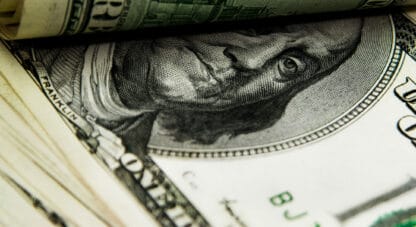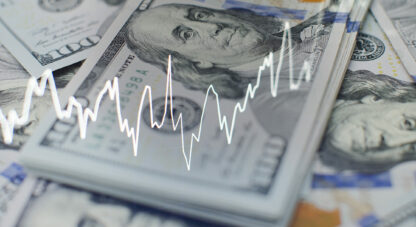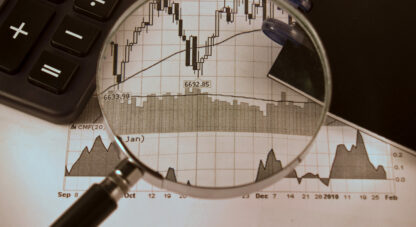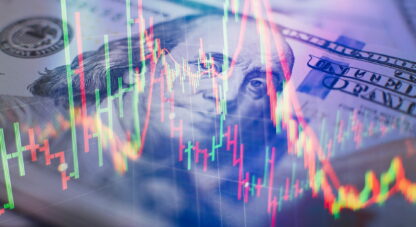A Look At This Week's Show:
- Looking ahead, national integration is the trend and likely outcome of the current European mess.
- The Breton-Woods Dollar reserve system will be replaced by a completely new monetary order between 2012-2014.
- Look for a transnational referendum to pass overwhelmingly taking Europe into a new era of transnational leadership and law.
- Be sure to visit: http://www.franck-biancheri.eu/ and http://leap2020.eu/
The McAlvany Weekly Commentary
with David McAlvany and Kevin Orrick
Kevin: David, today, before our guest joins you, I would like to talk to you a little bit about the integration in Europe. We are hearing all the chaos with Greece not being able to make its payments, and of course, what kind of division that might be causing in Europe, but there are other opinions inside of Europe that are seeing this as just a natural progression toward more integration. Are you finding that?
David: Kevin, I think when you travel overseas, one of the things that you have to realize is that there is a lot more that you don’t understand, than that you do. Whether it is linguistic differences, cultural complexities, there are things on the surface that you can make a judgment of, but in fact, you may be making a prejudiced judgment, or simply inaccurate judgment.
It is important, in that context, to look at international issues from various perspectives, and to try to step into the shoes of someone who is there on the ground, simply looking at things from a “domestic perspective,” although for us it would be an international one.
Kevin: We have been looking at what is happening right now in Europe, but I think the bigger question probably would be to look a little further down the horizon, and what will come out of this, in the next 2, 3, 4, 5 years.
David: I think one of the things that I appreciate about our guest today is that when he is looking at politics, when he is looking at economics and finance, you will find that their whole work is one of anticipation, and it is one of looking ahead.
Let me just borrow a quote from our guest today, Franck Biancheri, “Forces of inertia require anticipation.” We need to look at the way we operate in the international realm, and realize that under the current leadership there are a series of reactions. An event occurs, and we have a reaction to it, we have a response to it. But there is very little anticipation. There is very little strategic thinking that appears to be done in Washington, D.C. today, and I think you will find that perhaps there is more anticipation in other parts of the world, whether it is conversations that we have had, Kevin, about the Chinese mindset in their five-year plans, and thinking in terms of a strategic five-year plan, and certainly how those five-year plans fit into a longer context of 50- and 100-year thinking.
I think this is something that is sorely lacking here in the United States, and may, in fact, relegate us to the dustbins of irrelevance, historically speaking. As we move forward 15, 20, 30, 40 years, our greatest weakness is that we are not forward-thinking, we are living “in the moment.” Again, as Franck likes to say, “Forces of inertia require anticipation.” Certainly, that compliments what we do with investors, trying to anticipate, trying to see what lies ahead, so that the savage adjustments which you can encounter in the context of crisis, are not a negative, but are either neutral or positive, being on the right side of the trend.
Kevin: David, I know you have been following the writings of Franck Biancheri for quite a while, and appreciate, even if you don’t necessarily agree with, each point, this anticipation that you are talking about. This is a forward look. In talking to Otmar Issing, as well, he had a lot at stake for this European Union to work. But he also looked far enough ahead to say that crisis would probably bring about tighter integration.
David: In retrospect, I think we will look at this period of 2012-2014 as either a window of opportunity, or a period where we moved into utter tragedy, not only here in the United States, but internationally.
Franck, thank you for joining us. There are many things that we want to discuss with you today, and I will start with my initial exposure to the group that you are part of, the Leap 20/20 group there in Europe, and it was with a report that you did on the precious metals market, and correct me if I am wrong, but was that in 2006?
Franck Biancheri: Yes.
David: And, quite an extensive report, looking forward, as you often do, anticipating changes in the metals market, changing popular response to things that are happening politically and financially. You have written, more recently, that a crisis contracts time. Change that would ordinarily take decades or centuries can occur in months or years. Perhaps that is where we could begin today, with the high points of change that you see over the next 5-10 years.
Franck: Yes, indeed, crises have this kind of effect on time which means that changes that people are thinking could take very, very long, can happen in a matter of moments, or years. Right now, what we can see and we can anticipate for the coming years, I think, is very clear. We are going to see, in the coming 2, 3, 4 years, first of all, a complete reshuffle of the international monetary system. Whether it will be an orderly one, or disorderly one, is something which will be decided by the leaders in the coming 2 or 3 years, but one thing is certain in our opinion is that by 2015, or 2014 even, the way the international monetary system has been shaped since 1945, and especially since 1971, based on the dollar only, is something which is going to vanish in the coming 2-3 years.
David: One of the things that we have observed is that the French have always been particularly keen on noting change in the monetary systems, and I don’t know why that is, but looking at Jacques Rouffe, and his advice given to de Gaulle, and even looking at how the U.S. 20-dollar gold piece traded at significant premiums in Paris in 1931 and 1932, in anticipation of a nearly 65% depreciation or devaluation of the U.S. currency, there has been this anticipation. When you look at the monetary system today, and say, “Okay, 2014, 2015, there will be a change that occurs,” is that a view that the euro would play a larger role, that gold would play some role? Where do you see the significant changes happening, and is that something that the IMF plays a particularly large role in?
Franck: We have seen that the impulsion to the change, if it is a constructive one, will come from the D20. The IMF, for instance, will just be a tool, if it is involved at all. But it will come from the D20, because the pressure will come significantly, and at the same time, both from Europe, the current situation between the euro and the dollar, Wall Street and London on one hand, and the eurozone on the other hand, is getting more and more tense, and more and more volatile, and will lead to, I think, some confrontations, pretty directly, next year, between the leaders of both the U.K. and the U.S. and the eurozone on the other side.
And some of it will come from the BRIC countries: Russia, China, India, are not going to tolerate more than the next 2-3 years, maximum, to have a monetary system where they play a bigger and bigger role, and have almost nothing to say.
So, essentially, what we are going to see is, if it is orderly, probably through or with the IMF, transformation of the SDR into something which will be a kind of new global currency, probably based upon a basket of the major ones, like the dollar, the euro, the yuan, the yen, the real, the major currencies, we can imagine now, and certainly, some part of gold inside, because gold is making its big comeback from supposedly an old-fashioned antique, obsolete, to something much more modern than people thought 40-50 years ago, and that will be an orderly one. If it is managed through the G20, using the IMF and the existing system to transform it by 2014-2015, into something stable, where the U.S. dollar will just be one among others inside this basket of currencies.
David: The potential for an orderly change, directed by the G20, I assume that your view is that the G20 will take on a larger role over the next year or so because many of its leaders will be replaced this next year.
Franck: Absolutely. We are saying that the next G20 in Cannes will bring nothing on the table, because it is still made of leaders that are at the end of their term. But from next year on, from 2012 onward, there will be significant change. I would say that most of the major countries within the G20 are going to have new leaders by the end of 2012, and that is going to provide a new impetus, and probably, as far as we can see with our contacts within the G20, diplomats and G20 advisors for the summit, we can see that there is an increasing demand for some action and ideas are seen to be there, about what to do and how to implement these changes. But it is not something which can be taken for certain, of course, and there is another option.
The disorderly option, will generate for several years, a complete chaos, where gold, definitely, will be the big winner, because it will affect all paper currencies, will be in a dire situation, and this will trigger a complete currency war, for at least 4, 5, or 6 years, before the system finds a new way to settle down and to reconstruct some systems. But the next two years, this will be the decision time, whether it will be disorderly or orderly, but in any case, the system as we know it, cannot go on beyond the next 2-3 years.
David: We could take a 100-year view to the changes that are taking place currently. You have shrunk down this decade, the 2010-2020 decade, as what you call the lynchpin decade, and have said, basically, this is of a critical nature, perhaps the most important decade in the next 50-100 years, and then you have shrunk it down ever further, to say that this next few years, this period of 2010-2014, which is now immediately in front of us, just a few years left of that, represents the end of the world before what you just referenced as the post-1945 world order, with the U.S. dollar and Washington, D.C. and New York, being the primary determinants of growth and success, and reference, if you will.
And then the last half of the decade, 2015-2020, the emergence of the world after. Help us understand what that looks like. We would assume ascendancy, and further progress, in China and India and Asia, generally. Perhaps in the U.S. there is some speculation, not so many would assume a rebirth of European primacy. Can you look at the important supportive factors for such an outcome, where Europe plays a more dominant role. Is it tied to the euro? Is it tied to greater integration of a fiscal and political nature?
Franck: Yes, time, I think, is really crucial, between 2012 and 2016. But we are now getting to the four years which are crucial. In this four years, if we are in the positive scenario, which makes an orderly process and not a disorderly one, of course we are going to see an increasing power and influence of China, Brazil, Russia, and India, so that is something which I think no one can even argue right now.
But as you mention, Europe, we are witnessing already, something which the markets are seeing every day, and they cannot identify. Europe, for the worst, or for the best, has become central within the crisis right now at this stage. Everybody is looking at what is happening in Europe, for 18 months now, with the Greek crisis, the euro crisis, whatever people call it, but one thing has become clear. What happens right now within the eurozone – or the euroland, as I call it – has become the most influential factor affecting world changes and financial markets, which, in fact, is not only a sign that there are troubles in Europe, it is also a sign that what happens in Europe now matters immediately for the rest of the world.
And I think that it is, right now, in a transition process, but it is a long-lasting trend that the crisis is provoking and accelerating a new phase of integration within Europe and around the countries sharing the euro currency. We have been seeing, in the last 18 months, an amazing feat of integration with the creation of the financial stability fund with a lot of new regulations with the move now to fiscal integration. So we are seeing a real rebirth, a kind of renaissance, of the integration process which was stopped for about 20 years, and this is creating, at the core of the European continent, a new group of countries which are, basically, a new sovereign which is emerging.
And this new sovereign emerging will be in the next 2-3 years, or I think, almost completed, and that will create, definitely, a new player which is crucial. Why is it crucial? Because it is, in many ways, at the center of the possible new world order, which can come out of this crisis. Why? Because Europe is able to talk and to discuss and to find common ground, with the U.S., and also with the BRIC countries.
So, in fact, it is a power broker. If the Europeans move one direction, they can form the majority of any of the international institutions, either with the Brits or with the U.S. For instance, for the U.S. it is something which is almost impossible, to make partnership and common proposals for the new structure of the world, with the BRIC countries, because they are so many issues where the U.S. is at odds with Russia, India, China, and so on, that it is a no-go in that direction, whereas Europe is able to make agreements or to find common solutions with both sides. And that is exactly, in a new world situation, where nobody is going to be the leading country, but on the contrary, it will be a mix of powers which are somehow, somewhere, about the same size, or similar influences. The main influential power is the one who can create majorities, and I think that Europe is exactly heading directly toward this situation, this position.
David: On the question of leadership, because you make the point about leadership, which is, if you do aspire to the role, to be right, you have to take the risk of being wrong, and it would appear, at least from the outsider’s perspective, that the present leadership within Europe is, and again, this is the perspective of Brussels, specifically, not particularly, leadership, on a country by country basis, but that the Brussels leadership is not particularly productive.
Franck: That’s the least you can say. First of all, Brussels is not in the game anymore. What is happening is that it is a euroland process – 17 countries sharing the euro, which are making the decisions right now. Brussels is mostly a spectator in many ways, or a side player. As we titled in one of our bulletins in May 2010, when the stability fund was created, it was a coup d’état, made by the eurozone countries within the EU.
So, in fact, when one wants to understand what is going on right now in the European integration, and for the future, one has to focus on what’s happening within the euroland countries and not anymore within the EU traditional framework, like Brussels, and so on. The political level at the national level is also very weak right now within the EU and within the euroland, because all of its leaders also are at the end of their mandates. So, what we have been anticipating, and we are seeing, very clearly, coming in the next 6-9 months, is that there will be a renewal of leadership in most of the major euroland countries: France, Spain, Italy, and Germany. In Germany, the coalition will never last into 2013, they will have election next year, as well.
So the euroland countries are going to see next year, by the end of 2012, the complete renewal of leadership. It is a very similar process, the G20, where you have also these countries with Russia, with the U.S., with China, where the renewal will take place. It’s a strange coincidence that in 2012, both in Europe and on the global scene, there will be this kind of transition of power. It will be a new generation of leaders, and leaders within Europe, which for the first time will be leaders who have seen the crisis taking place, and for the last 18 months to two years have been witnessing the lack of ambition and the lack of leadership that the current leaders have been showing.
If I can take an example, an image – I don’t know if you are familiar with was called the Euro missile crisis of the early 1980s. It was when the USSR tried to neutralize Europe with a system of missiles and NATO tried to make counter missiles, and, for a while, Europe seemed to be completely lost, because it was full of pacifist movements, preferring to “better red than dead” and so on. And at that time in 1981, the European project was completely failing. Three years later, with a new group of leaders arriving in 1982-1983 – Mitterand, Kohl, and so on – it was only three years later that there was what I call the first renaissance of the European project, which led to the single market, the single currency, and all those kind of things.
So, Europe is used to that kind of situation, where at one point, it looks like the leadership is completely gone and the project is going in no specific direction, or even going to collapse, and in fact, just 2-3 years later, the change of leadership leads, in fact, to reverse the process. And I think we are exactly on the same pattern, and that if we were to interview again in the second semester of 2012, it would be a completely different vision of what Europe is doing, and what euroland is heading for.
David: It seems that we are getting to that point where there is either greater integration and success as they move forward toward the vision of a unified Europe, or, and this is perhaps where we have some questions remaining, you see throughout Germany, voters continuing to send a particular message. Merkel’s coalition is losing ground, it seems that the efforts to bail out various European countries is not “popularly,” or democratically, acceptable. How do we, then, see a different form of leadership, whether it is France, Spain, Italy, Germany, which takes us in the direction of integration, rather than a fracturing of European interests toward more national or local concerns?
Franck: Well, I must say that I disagree with this analysis. I think the Anglo-Saxon media have been completely twisting what is happening in Europe, essentially, because a lot of media in the U.S. or in the U.K. do not understand what the EU is doing. When you take the U.K. news about Europe, it is like taking the USSR news about America during the Cold War.
David: Pravda, yes.
Franck: So, let’s be clear. There is no specific popular movement in Europe, Germany or anywhere else right now, which is against integration. It is just a typical, classical 15% of voters which have been euro skeptics forever, and “this never will stay forever,” and so on. The crisis just gives them a more vocal situation, and the media places a lot of emphasis on what they are saying. But when you look at the political situation in terms of majorities and political parties, you are seeing the overwhelming majority in the Bundestag, which has supported the extension of the financial stability fund. If there is a new leadership next year in Germany – the SPD/Green [coalition] probably could be the alternative to the CDU right now – is even more in favor of European integration than the CDU/SPD current coalition.
If you take France, the Socialist Party is most likely going to win the next presidential election. They are even more in favor of European integration acceleration than Sarkozy’s UMP right now. So when you look at the situation, politically speaking, in the eurozone countries, not only are the existing parties in power in favor of this integration, but the opposition parties are, most of the time, even more in favor of it. So, very honestly, coming from Europe, working and following these issues for more than 25 years now at different levels, I have a strong imagination, but I cannot imagine even one single possibility, right now, that there is any other way than this fashioning of integration taking place next year, as I was saying before. It is not wishful thinking, it is just a fact of life, and a fact of the political situation and the strength of the trends in each of the countries. The full integration parties are in power, and will stay in power, whatever happens in the coming years. So, in that sense, the story is already written.
The only thing which is questioning the process, is the democratic issue, and that is not dating from this crisis. It is a very old issue of the democratic difference within the EU for at least 20-25 years. But this democratic question is also something which is changing with the euro integration, is the fact that what we think, in the next two years, by 2014, the euroland countries are going to be obliged to present a new constitutional treaty to the population – the population of the euroland, not of the EU, but only the countries sharing the euro.
And this referendum, for the first time, will be a trans-European referendum, not a series of national referenda like they did last time, and it was a complete failure and a mess. So, in fact, not only are we saying that the next 2-3 years are going to see more European integration within the euroland and the emerging of a semi-state within the euroland, but it will also trigger, by force, the first democratic process involving public opinion to support this integration, and I have no doubt that in such a trans-European referendum, there will be an overwhelming majority in favor of this step.
The euro-skeptic forces on the continent within the eurozone are absolutely marginal. They are vocal right now because the politicians are unable to present a long-term future and a perspective. This shortcoming will be disappearing next year with a new bunch of leaders taking position in France, in Spain, in Germany, and so on. And I assure you, my job with LEAP is to be as objective as we can. I would not say negative things, I don’t think, about Europe, just for the sake of looking objective. I think I am objectively describing the situation, like we have done with our work for the past 5½ years, because it is exactly what we are seeing when we look at public opinion, political trends, and so on, taking place within the euroland.
David: Certainly, looking at the Anglo-Saxon media bias, and we would agree, whatever the media we are talking about, there is a bias, always. There always are reasons to be expressing opinions in the way that they are expressed. We have gotten a free pass. London has gotten a free pass, and New York and D.C. have largely gotten a free pass, with a focus on the euro crisis, with a focus on Greece. It has diverted a tremendous amount of attention from anglosphere deterioration, and what could be, very well, a collapse in the U.S. currency, and a collapse in the U.S. Treasury market, if people were looking, not just at liquidity concerns, but real balance sheet issues here in the United States.
One thing that seems to be troubling to me with the ECB – Trichet is moving on, Mario Draghi takes his place. Does this help or hurt the ECB? Is this almost a replay? Maybe we are adding too much from one portion of his CV, his stint with Goldman-Sachs. How much does he play to London and New York interests, as opposed to the interests of Europe?
Franck: Yes, that’s a good question. I think that it has been a very bad move in terms of the public opinion in Europe, to put a former Goldman-Sachs manager as the head of the ECB. I think it is a mistake, in terms of credibility of the ECB toward the European public opinion, but, then we have to give Draghi at least the benefit of the doubt for the first six months, to see whether he will act as a European-dedicated bureaucrat, or if he will act as a former Goldman-Sachs employee. I think that the constraints of his job will be extremely large, so he will not have that much room to maneuver in his own interests.
But I think that the ECB is getting into a position which now cannot go beyond alone. That is one of the jobs that the government has to do within the euroland in the coming six months and I think they are aware that they are having to move next year, at least, on that, that there is a need for political, economical, governmental balance to the ECB. And meanwhile, we have to have the governments taking responsibilities with eurobonds, and so on, of many issues which now are left only to the ECB to solve.
I think the ECB has done most of its job, and now the governments have to go forth to something else, with more integration and more balance of power between the ECB and the political level. That is why I think 2012 will probably also bring a lot of innovations like these eurobonds, whatever the German public opinion is saying right now, that eurobonds would be out by 2012. And that will diminish, a lot, the pressure on the ECB, and as well, the feeling that they are the only ones involved to do things, which is, in fact, true right now. Again, for Draghi, a bad public opinion move, and perhaps a real threat, I would say, for the common good of Europe, because he is coming from Goldman-Sachs. But I will wait for six months to be sure of that.
David: It looks like 2011, the last quarter, and 2012, are shaping up to be very, very interesting, and perhaps, incredibly volatile. One of the things that we have looked at, again, going back to my original introduction to your work, which was a special report on gold – gold has made a comeback in the last few years. It has done very well, and it is something that does well during periods of distress. It is something like an insurance policy. It pays during a particular period of time.
Seeing it play an official role in the international monetary system, I am having a challenge with this on the one hand, particularly just coming back from Europe, because amongst the banking community, gold is very unpopular. How does it play that role amongst central bankers? This is what has been considered the barbaric relic. What is their new-found motivation to have something that is an anchor, or ties their hands, so to say?
Franck: Well, gold may be unpopular with bankers, but I will say that bankers are even more unpopular with everybody right now. So, I think this is indicating where things are going to go in the coming years. The only way gold was depressed, or put out of any role in this monetary system, was due to the fact that the dollar was able to have liquidity enough to play the role of the anchor. Now, this role is finished.
David: So you take the dollar out as the anchor, and you have to have some sort of an anchor.
Franck: Yes, exactly. The credibility of the dollar … you should look at gold, as we were explaining in our last bulletin, if we look at the next three years, the only way the gold prices could go down would be either that the dollar finds a new credibility again as the sole reserve currency. Well, to be honest …
David: Low probability.
Franck: Yes, even zero probability, I think, in terms of this happening – or that the G20 find a way to create a new global currency, maybe with some gold inside, by the way, but a new global currency, to be the new basis for the monetary system. But, in the best scenario for that, it will never happen in the next three years. So, what we say is that, for the next three years, we don’t see how gold can go anywhere but up, because these are the only two conditions for gold to go down, and they will not be met, neither one nor the other, before at least 2014-2015.
So that gives three years, at least, where we think the trend is clear, and central bankers are just obliged, like everybody else, they are committed to this reality. One of their jobs is to be sure that they are able to preserve the value of the reserves of their country. And therefore, as we have seen in the past two years, most central banks in the world are now becoming buyers of gold when they have been selling it in the past. And this is the simple fact that there is no other option.
David: If for other reasons, we have looked at the 2014-2016 period as a major transition point, and up to that point is incredibly lucrative for someone who owns gold, the good news comes with bad news. Most people do not have 100% of their assets in the precious metals, so where you see a gain on the one side, you are likely to see losses on the other – whether that is equities, or dollar-based assets.
Franck: Of course.
David: Perhaps you have some thoughts on the Treasury market and the fact that here recently, yet again, there is a move to dollars, and specifically, to Treasuries, when there is concern with the euro, when there is concern with the eurozone, when there is concern, generally, with liquidity. What do you think changes people’s perspective on the validity of Treasuries as an instrument of stability?
Franck: I think that the trend we have been seeing recently is not the fact that there are troubles in Europe, and therefore people move to the Treasuries, that there has been a creation of what is supposed to be a deadly crisis in the eurozone, in order to have people moving and shifting to Treasury bonds. We are in a situation, basically, where the western world is trying to find funds by any means, in a world where these funds are less and less available. And therefore, the past quarters have been showing that Wall Street, or the U.S., has been more and more trying to push fear on Europe in order to convince international buyers to come to T-bonds, rather than going to eurozone bonds. Nevertheless, it doesn’t necessarily work so well, at least, in Europe and Asia.
But going back to the Treasury bonds market, I believe that by the end of this year, November and December, we are going to see another replay of this summer budgetary ceiling situation in the U.S., that there will be a new degradation of the ratings because there will be no solution found in Washington, and that what I think is already the recession taking place in this country, will show that there is absolutely no way out of the new long recession and painful one. We see that public opinion –the occupy Wall Street movement – is now starting to make headlines everywhere. We see that public opinion within the U.S. is is less and less ready to accept the way policies are made right now within this country, so, to make it short, I am saying that, by the end of this year, we are going to see that the U.S. is Greece, and that, in fact, the true Greece is the U.S., and that will have a devastating effect on the T-bond market.
David: Yes, this is very clear. And coming back to an earlier point in our conversation, this is really a reflection of leadership. I have garnered from reading various things that you have published, that you are not a particular fan of Sarkozy, or at least his leadership abilities, and I think we could say the same of our current administration, not to pick on even one personality, but to look at the whole stock in legislature. “To be right,” as you said, and I will quote you again, “You have to take the risk of being wrong.” And we don’t have people today who are concerned about doing the right thing for our country. They care more about their political legacies, I think, or at least, that is what their inactivity at these critical moments, is implying. So 2012 looks to be a very, very interesting year.
Franck: Yes, I think it is really a pivotal year, which is going to be, I think, in the history books as a year for the better. Extremely important changes will take place in the way the world economy is organized.
David: We will look forward to exploring some of those ideas with you over the next couple of days, and thank you for sharing your thoughts with us. If our listeners are interested, where might they find more information? I will let you direct them, if you will, to your website.
Franck: My website is Franck-Bianchieri.eu or there is my book, which they can find on the website of the publisher, which is Anticipolis.eu. The book is The World Crisis. And of course, there is the Leap 20/20 website where all this information on the crisis is posted every month, which is Leap2020.eu.
David: We will go ahead and include those links on our website and people can just click straight through. Thank you so much for joining us.
Franck: Thank you, David.




